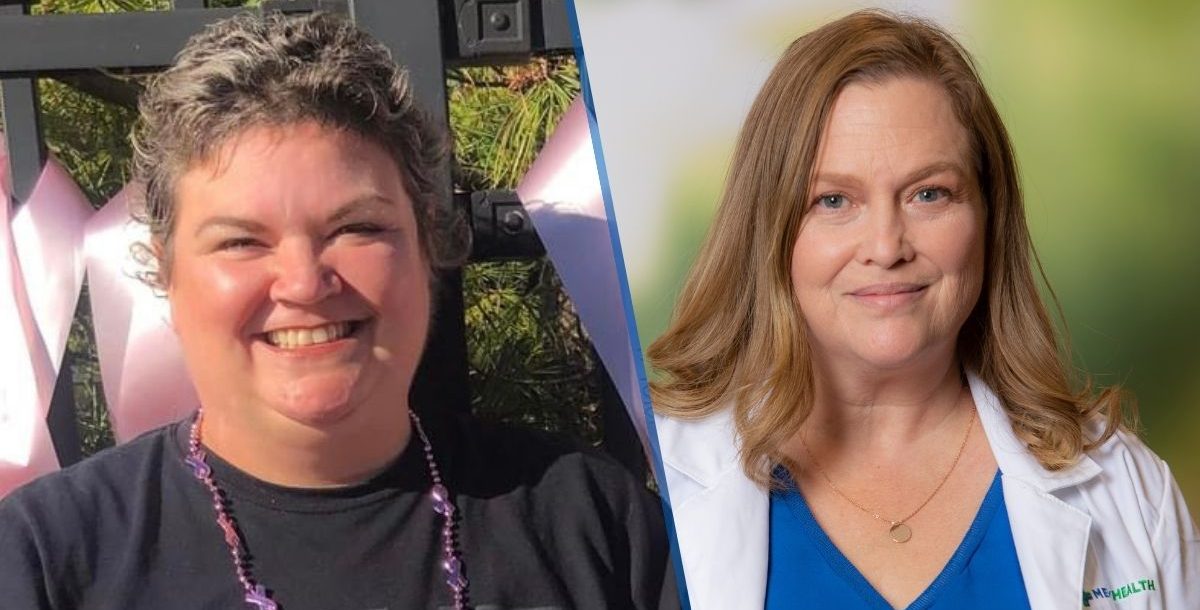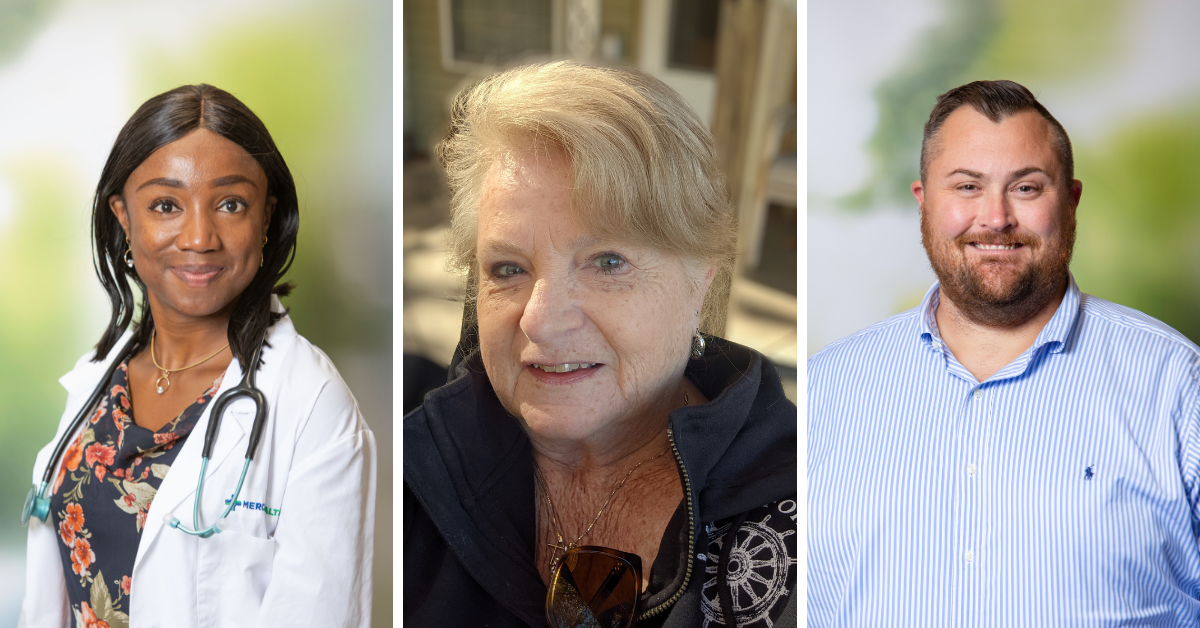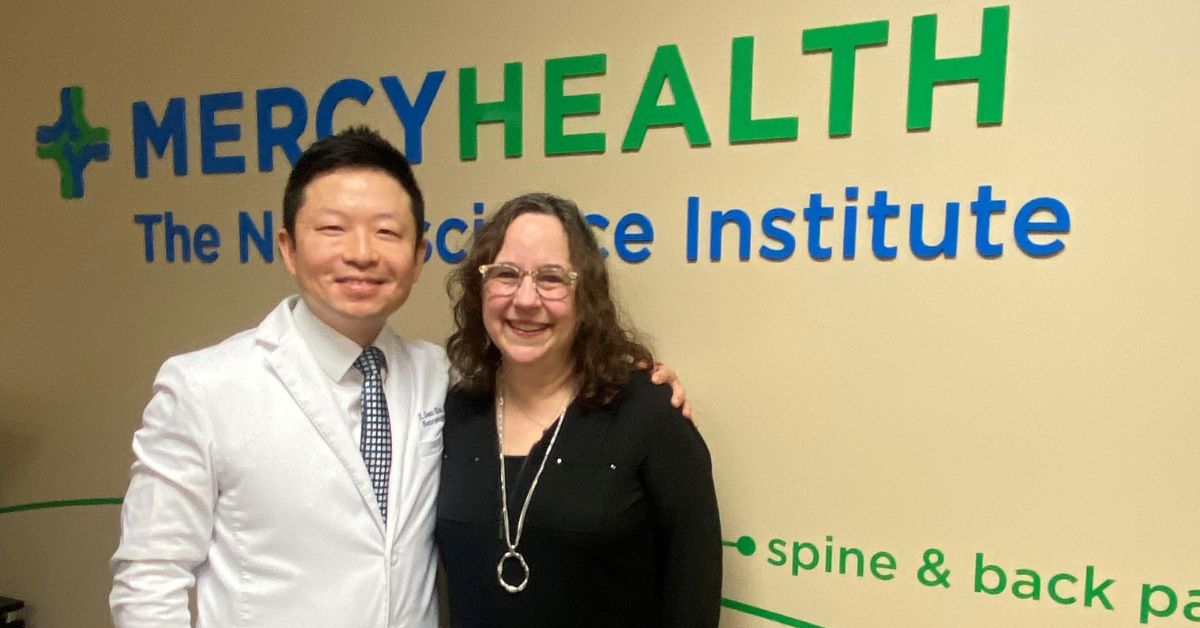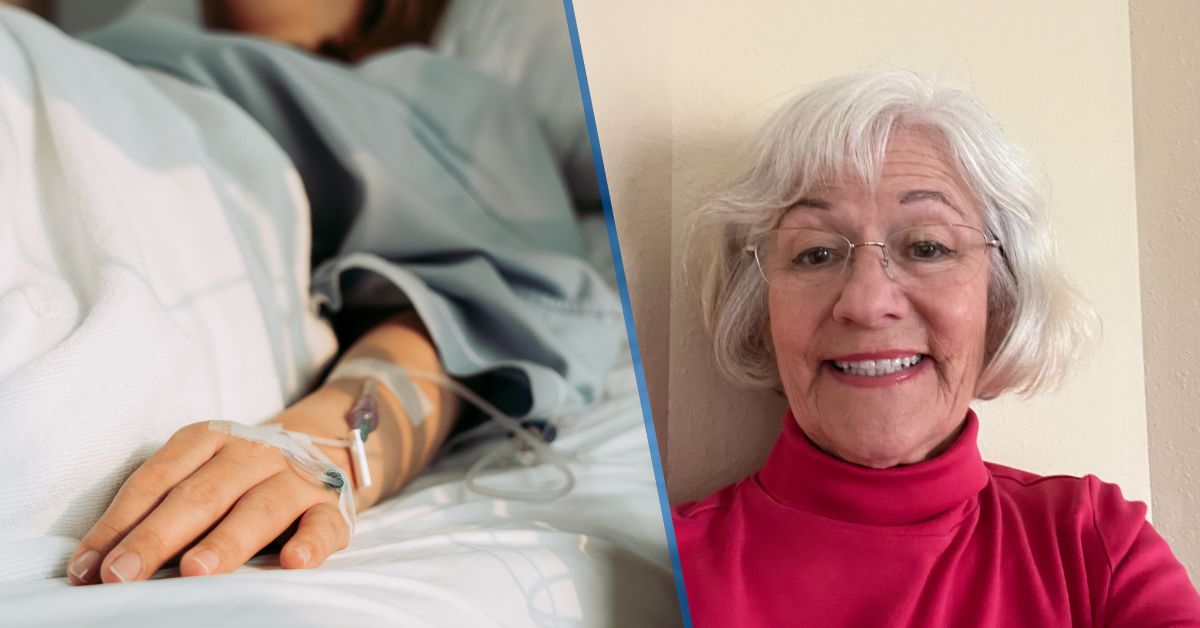Genes are the building blocks of the human body. They determine what we look like and, to some extent, who we are. They can also be a key source of information when it comes to determining your risk of being diagnosed with cancer.
“In certain cancers – breast, ovarian, pancreatic, colon, etc. – there can be a genetic component,” Susan Weisman (pictured above, right), MSN, APRN, a cancer genetics counselor in our Springfield market, explains. “When people do have these changes in their genes, it can make them more susceptible to certain cancers so they become eligible for increased surveillance, and we can also test their family members.”
Genetic testing provided some answers for 43-year-old Amanda Wolford-Buntjer (pictured above, left), who was diagnosed with breast cancer in the fall of 2020.
“I had just gotten the COVID-19 and flu vaccines. That’s when I started feeling lumps, and I thought it was just from the vaccines messing with my lymph nodes,” Amanda recalls. “I hadn’t felt much before that, not saying I was really diligent about looking for it. Still, I thought better safe than sorry and decided to do the mammogram.”
By the time of her diagnosis, the disease had already spread into Amanda’s lymph node system. The news came as a shock, especially as she had no reason to suspect cancer at the time.
As someone who was adopted, Amanda had very little family history information and the details she did have didn’t point to any concerns of cancer. That’s where genetic testing filled in the gaps.
“She was positive for the BRCA gene, which helps explain why she got cancer at such a young age,” Susan says. “Instead of having a 12.5 percent lifetime risk for breast cancer, it goes all the way up to 85 percent when you have this mutation. The risk for ovarian cancer also increases drastically – from 2 percent to 60 percent. Women aren’t the only carriers of this gene, either. Men with the BRCA2 mutation have a 6 percent chance of experiencing breast cancer in their lives compared to just 1 percent lifetime risk for men with a BRCA1 mutation.”
Amanda didn’t waste any time – deciding to have a full hysterectomy to avoid other cancer risks in the future. She also hopes arming her family with this information will help protect them moving forward as well.
“Had I known about the breast cancer as a potential high risk, I would have been more diligent about my own care,” Amanda says. “I wouldn’t have waited so long to get tested and I could’ve prevented some of the metastasis into my lymph nodes. My daughters can now be tested, if they choose to when they become adults, so they can be more proactive rather than reactive with their care. I think it’s important to embrace this type of information, because that puts you in control of your health care, so you don’t feel so blindsided when things do happen. Instead, you can be somewhat prepared and know what the steps would be to treat it.”
Genetic testing is often as simple as a quick saliva or blood test. It’s free for Medicare and Medicaid patients who meet the criteria, and costs around $250 out of pocket for others. You also don’t need a referral to get started.
“The goal is for us to make previvors – people who never have to show up with a late-stage cancer,” Susan shares. “So, yes, it’s helpful information when making treatment decisions for a patient, but it’s also wonderful for their family members who we hope to keep from showing up with these late-stage cancers. It’s a wonderful service and even better, it’s available right here in our community.”
Learn more about our genetic cancer risk services as well as the cancer care services we provide at Mercy Health.






